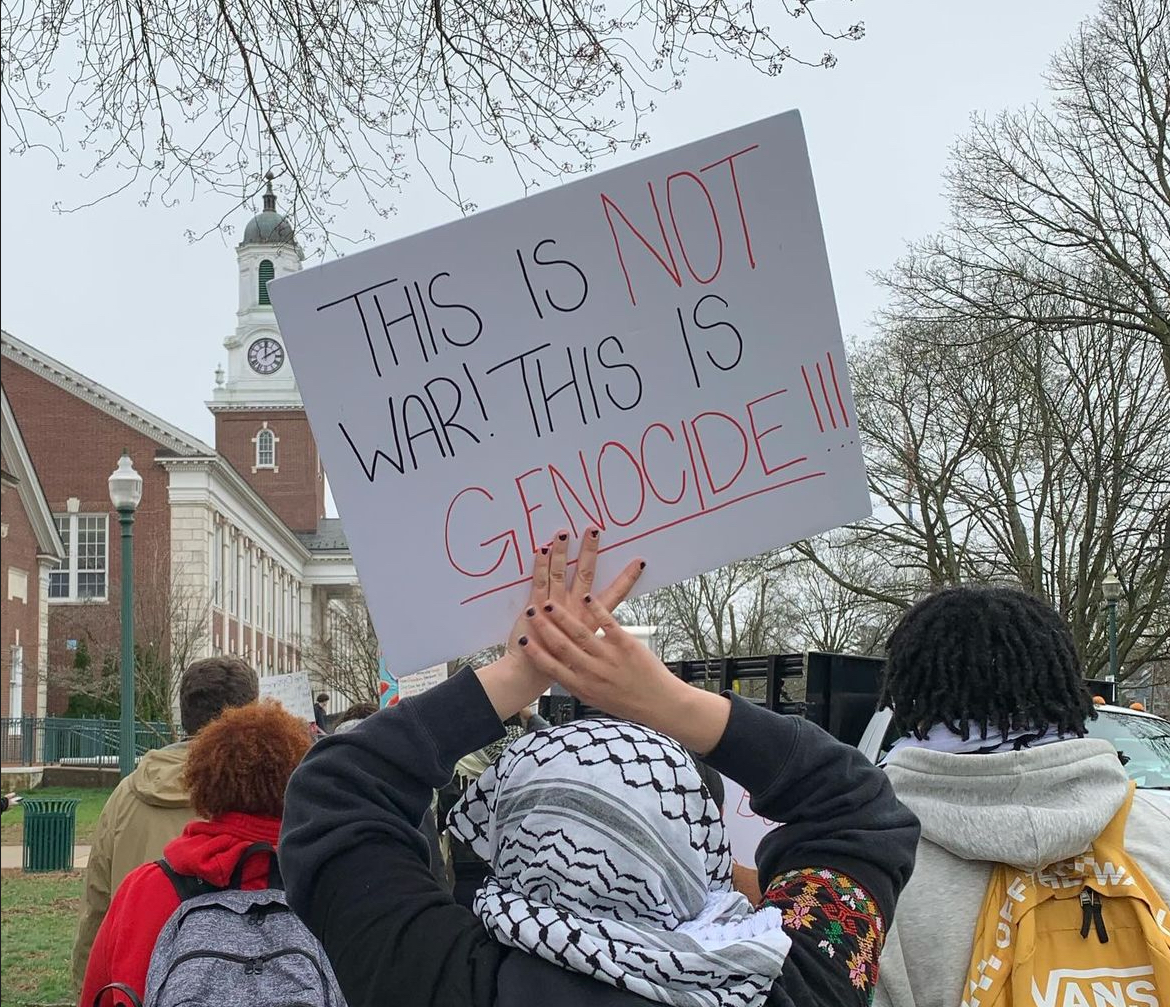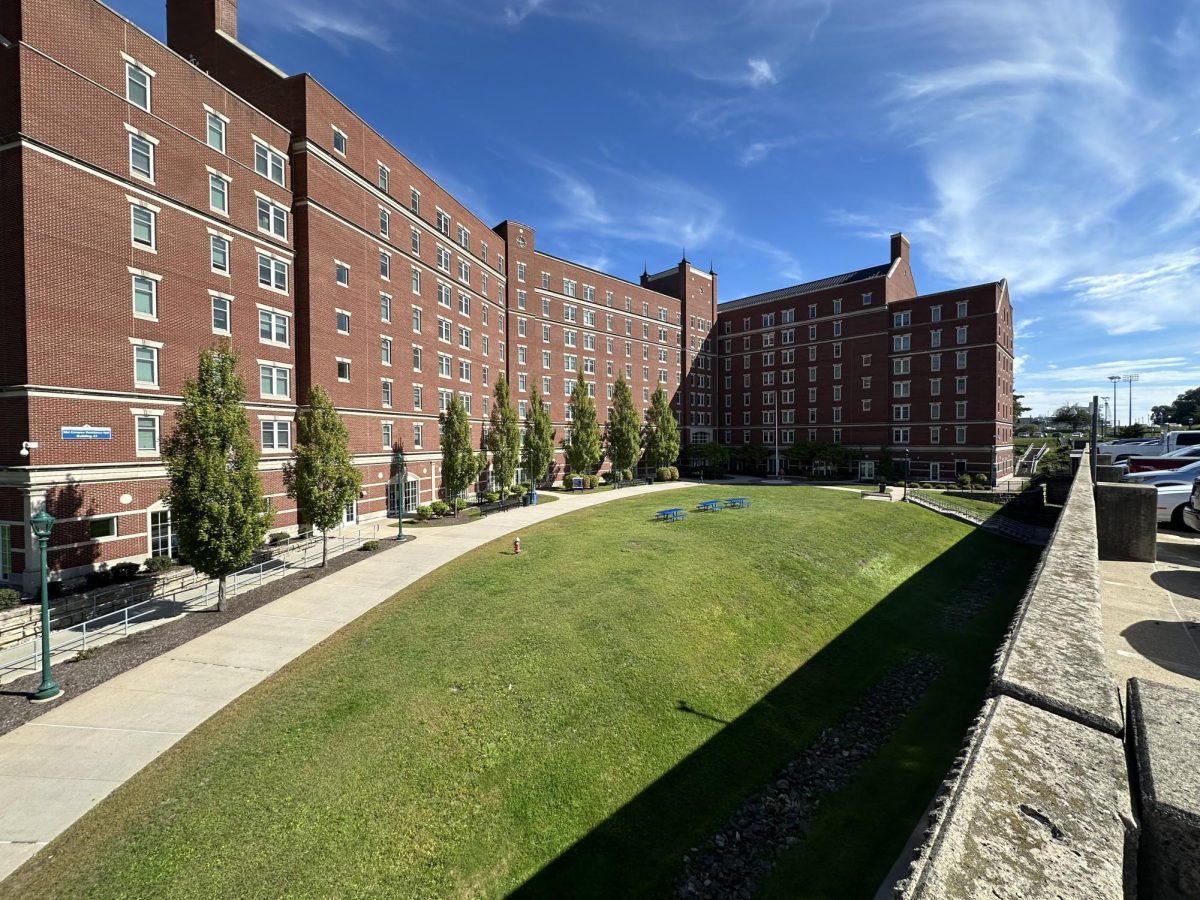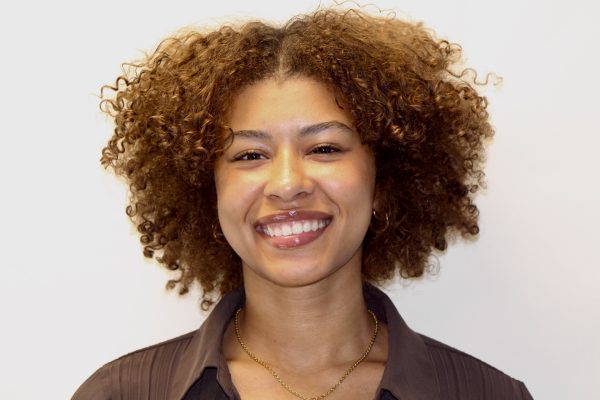Tensions and biases towards Muslim and Jewish people have escalated on a local, national and global scale. CCSU students said they have felt this pressure, even within the confines of campus.
Columbia University’s president canceled classes and switched to hybrid learning in light of recent protests. Dozens of Yale students were arrested for protesting. While CCSU has held protests without legal incident, tensions have since flared.
“Free … Free Palestine,” a crowd chanted at CCSU’s Students for Justice in Palestine and the CCSU Intersectional Justice Coalition’s rally in support of Palestine on April 11.
Vanessa Paddy, a Jewish student, said that professors are accommodating and welcoming, but the protests are not.
“I would say the challenges really only come from the ‘Free Palestine’ movement because both on college campuses and in public spaces, they target visibly Jewish people or people who have made it known they are Jewish,” Paddy said.
She said she is thankful not to have encountered any challenges or discrimination due to her identity but said, “It makes me feel unsafe on campus when they host protests.”
Nylamar Samuels, a Muslim student who is a member of the Muslim Student Association and CCSU Students for Justice in Palestine, said that the administration has been repressing the recent protests.
“We did our protest for Palestine … but it was supposed to be held the week before,” Samuels said about the rally and vigil originally scheduled for April 4. “There was a post saying that it was due to weather, but it was really because admin was saying they (SJP) didn’t have ‘all the boxes checked,’ even though they did.”
Lily Mercado, co-founder and president of the CCSU IJC, said the administration canceled the vigil and “have been unable to support that decision by citing what policy we had violated.”
Jodi Latina, associate vice president of University Communications and Media, said the event was postponed due to policy, as the event was initially labeled as a “walkout,” which is considered a disruption by CSCU’s Free Speech Guidelines.
“The walkout was added to the initial request after the event was approved as a rally and vigil,” Latina said. “It was clear through advertising materials promoting ‘A Walkout, Rally and Vigil’ that the club was promoting an event that was not pre-approved by SALD as required.”
Latina said club leaders and advisors were informed in detail by the director of SALD and that clubs were informed on the event approval process via email last semester.
“It states that if student clubs change what was approved, they will have to go back through the approval process, or the event may be postponed (or) canceled,” Latina said. “And that is exactly what happened here. The students involved were a part of this discussion and made aware of the issues.”
Samuels said the institution is “completely silent” on the issue.
“If you’re silent on this issue, you have picked the side of the oppressors,” Samuels said. “There are people who have direct connection to (Palestine). She’s (Toro) not acknowledging that at all. Imagine going to school, and 83 of your family members were wiped away by a bomb. That’s what happened to one of my friends.”
On Oct. 10, the Student Government Association sent an email to all students with the subject line “TODAY: CALL TO ACTION!” inviting students to an “All Out for Palestine” protest. CCSU President Zulma Toro sent a follow-up email the same day apologizing and saying that SGA took one side and that it was a mistake.
“I was so deeply disturbed by that,” Samuels said. “I even ended up having a meeting with her about that email being sent out, and then after she had an email about an Antisemitism Task Force right after that. It’s just like, where’s the one on Islamophobia? Where is you all talking about what’s actually happening? But it’s just so one-sided. And it’s because this is a state-funded institution. So, they’re not trying to pick sides. But everything that they’re being having sent out is one-sided.”
This task force has since evolved into the Committee on Anti-Semitism.
“A big part of that committee is education,” the campus Jewish faith consultant, Steven Bernstein, said. “Not just dealing with antisemitism, but the idea that it’s a lot harder to hate someone, that you know. It’s a lot harder to hate a group if you know that group.”
This is a sentiment that Paddy said would leave room for less hate on campus. She said school events that educate students on different religions and cultures would be beneficial.
“I think we are all stronger together, and the more we know about each other, the more tolerant we are,” Paddy said.
Along with feeling unsafe, Paddy said she has felt anger and frustration with the narratives being spread through the pro-Palestine movement.
“People have the freedom of speech, of course, but that doesn’t mean their speech doesn’t drive hate and misinformation,” Paddy said. “I wish there was a larger voice for truth out there.”
The recent rise in pro-Palestine protests and activism has not been met with backlash from the Jewish community because “Some of those voices are scared into silence,” Bernstein said.



